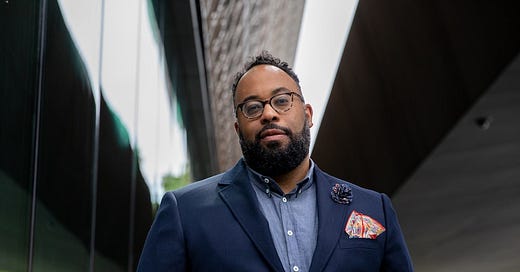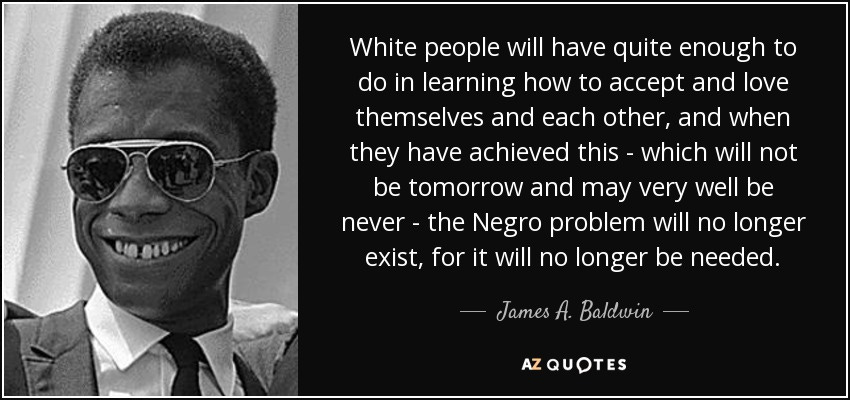Poets! This is our department.
In fact, first they came for Diversity & Inclusion, and started sacking senior Black government employees and then deleting high-achieving African Americans from dozens of government-adjacent websites. That was before anything else. So it was a dead cert that when they did come for museums they’d want to start with the National Museum of African American History and Culture. I read in the wee hours of this morning that the Director of the NMAAHC has been put on indefinite leave. The Director who is also the poet, Kevin Young — in fact, the poetry editor of The New Yorker, Kevin Young.
I started writing a Facebook post about it at about 4.30, but it got big, so I saved it in my notes app to make a Substack post out of, and finally went back to sleep. Today’s been a total crash; I’ve spent 90% of it in bed; and this evening, up for a bit before going back to bed, I find my lovely nascent post has been eaten. So I’ll try to recreate it, but it might be a bit rough.
So Young has been suspended since 18 March — as Artnet reports, since ‘two weeks before President Trump’s March 28 Executive Order, Restoring Truth and Sanity to American History, that targets funding for museums and programs at the Smithsonian Institution that he deems have “promoted narratives that portray American and Western values as inherently harmful and oppressive.” The NMAAHC’s consideration of slavery, Jim Crow, ongoing discrimination against Black people, and other difficult subjects doubtless brought the institution into the new administration’s crosshairs’.
As a poet, Kevin Young was shortlisted here in the UK for his 2021 collection Stones. It’s a beautiful book, dealing quietly and unfussily, in calm, almost still tercets, with these small matters of death, loss and the ongoingness of life — of ancestors, older relatives, toddlers, fireflies, cows, fields, graves, birds in trees… It’s not the book you might expect from such a cosmopolitan man, but there we are. Everyone has their deep roots somewhere, and Young’s are in a rural Louisiana that now feels — at least to me, from here and now, even where bits of it feel familiar — like some kind of a dream —
Lead me from this
yard of bones
these houses of stoneto the wooden home
where my mother
got herself born—later torn down
& turned to fire—
I remember wellthe ground that shone
four feet below
through its raised, holey floor.(from ‘Skeleton Key’)
As it happened, Young’s collection was pipped to the post that year by Joelle Taylor’s equally admirable, and homegrown, C*nto, but I’d also have been content if he’d won. Quiet as his poems are, and deceptively simple and qotidian in that way of eg Williams or even Frost (who surely played a huge confidence trick on the middlebrow public, who seemed to consider him as some genial poetry grandpa!), they go in and stay. Written in, as Marianne Moore put it in her poem ‘England’, ‘plain American that cats and dogs can read’. I was reading his book in the bath and at one point was so overcome that I dropped it in — only the second book in a lifetime of bath reading. I did take it with me to the awards ceremony to ask him to sign it, and had to present him with this water-damaged copy and explain that a water-damaged book is a book that’s been loved…
Young’s poetry is wholly congruent with his work at the African American History museum, and the work he did before that at the New York Public Library’s Schomburg Center for Research in Black Culture. I haven’t been to the NMAAHC, and I wish I had been. It means a lot that it’s there. It’s inspiring to go to, for instance, the Jamestown Colony site as I did in 2019, and read that the three equal influences that created American culture are the Europeans, the Native Americans, and the West Africans. (No one ever said this when I was growing up!) And then go to the Chrysler Art Gallery in Norfolk, VA, and find it packed full of incredible, beautful, inventive and daring work by contemporary African American artists — which was thrilling, and new to me, and just an incredible thing to see. On this side of the Atlantic, this new ability to be real about race and the past shows in things like David Olusoga’s documentaries for the BBC — especially the one about all the people who were paid compensation when slaveery was abolished. It showed how slave-owning, as a respectable and reliable investment, was threaded through all of British society — not just the great rich families, but also genteel-poor widows, schoolteachers, even clergymen. We need to be able to talk about this.
The NMAAHC attracted the ire of Trump and others in 2020 ‘for commentary on its “Talking About Race” portal, which, in the wake of the police killing of George Floyd and Breonna Taylor, marshaled more than 100 multimedia tools, including videos, scholarly articles, and exercises to help educators, parents, and others develop the language to have productive conversations about “one of the nation’s most challenging topics,” according to a press release’. Among other things it discussed White culture as being a specific thing, rather than as the main thing; not as some kind of holder of ‘normality’ where other cultures were somehow deviants from.
I don’t know. I find this new understanding so freeing! The BLM protests were the only thing that gave me any real hope or joy during the lockdown. Horrific as the information often is, knowledge is power and the very freedom of it is exhilarating. Like opening the curtains at least, spring cleaning, getting rid of all the cobwebs. It is horrific watching this group of yahoos try to destroy what so many people have worked so hard for, and that we will all benefit from.
Yes, all of us. As James Baldwin said:
I’m writing this, too, just a couple of days after Senator Cory Booker’s historic filibuster, in which he spoke for 25-hours telling (at least in the bits that I saw) stories of Civil Rights leaders, of life as a Black American, and the fact that he is even now only the fourth person of colour to be elected a Senator in the US. His 24-hour protest against the Trump government was so personal — the previous record had been set in 1957 by the white supremacist Senator Strom Thurmond’s loathsome 24-hour attempt to stop the Civil Rights Act from passing. As Booker said (& I paraphrase), ‘I’m not standing here now because of what he did. I’m here despite it’. He also said, ‘The power of the people is greater than the people in power’. It’s a rallying call for people of colour everywhere, not just in the US, and for all of us.
‘Poets are the unacknowledged legislators of the world’.
Shelley said this and it is true. Kevin Young surely knows it too, and his book — this one book that was gently dropped like a stone into the pond of British poetry, and indeed into my own bath — is like a little magic capsule that brings us some of that culture — the slamming screen doors, dogs lying under the porch, dirty outdoor-playing children being scrubbed clean in the bath, ‘the grey circling the drain’ (from the very clever poem, ‘Joy’). The smell of the dusty heat, the calm knowledge of — well, of just knowing things are so. He legislates for the stories to be told, the snapshots saved, the artefacts to be labelled.
The museum itself isn’t shut; Trump’s mob aren’t (yet) doing anything that overtly crude. They’ve just removed the guy who’s been doing this story-telling and, as it were, unofficial legislating for fresh air and freedom.
Here are four pillars of the NMAAHC’s mission:
It provides an opportunity for those who are interested in African American culture to explore and revel in this history through interactive exhibitions
It helps all Americans see how their stories, their histories, and their cultures are shaped and informed by global influences
It explores what it means to be an American and share how American values like resiliency, optimism, and spirituality are reflected in African American history and culture
It serves as a place of collaboration that reaches beyond Washington, D.C. to engage new audiences and to work with the myriad of museums and educational institutions that have explored and preserved this important history well before this museum was created.
This, then, is the manifesto of what Trump and Co say must be destroyed. We know this.
And we’re the poets. So we know what our job is.
“Till the end
we sing
into the wind.”
(from ‘Dolor’)






I come away from reading this post better informed, and quietly hopeful. Despite everything. Thank you.
Thank you for this. The Toris are watching the US and making notes…
This could be the UK in four years if Starmer doesn’t start delivering the goods.